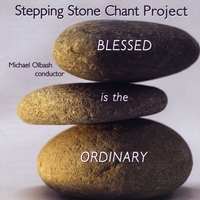One good thing we used to do at my old engineering job was to look for “Lessons Learned” when projects failed.
Today, a friend let me know that her efforts to put some really nice music into her father’s funeral this week weren’t going anywhere. The rest of her family overruled her. They didn’t want the lovely Bainton motet or the Faure In paradisum. They didn’t care about the plainchant Mass ordinary. They wanted “the Irish Blessing”, “Be Not Afraid”, and “Precious Lord, Take My Hand”.
This effort reminds me about the value of a gradualist approach. People accustomed to OCP songs can’t be expected to accept Latin plainchant and polyphony. We know that. I know that. I’m sorry I didn’t say so up front. I could have told her, your suspicions are right, dear: this program is overreaching, so aim lower!
It reminds me of Dr. Mahrt’s talk last year (mp3, 45 min.), in which he described turning his parish’s music program around radically when they hired him; it took years, but he made many of the Church’s musical ideals a reality, all without introducing Latin. Making the music of the Mass beautiful is more important than making the text Latin; and in fact, making it beautiful in the present is the pre-requisite to getting acceptance for Latin in the future. So beauty is what we need to focus on, and changes need to be introduced gradually.
For an average funeral, the best one can do may be just to steer the parish music staff to somewhat better, more beautiful choices than they would normally make; for example:
— to use a dignified Mass setting (Proulx or Vermulst instead of Haugen)
— to replace a bunch of musical-theater ditties with three or four sweet classic hymns (they can even be a bit cloying, but people will like them, and they’re better than what they replace)
— to sing a real responsorial psalm instead of a non-Scriptural song
— putting the not-so-great songs that you’re compelled to include before the Mass or after it
And when we’re not making the final decisions, which is most of the time, we’re forced to pray the famous prayer of AA and the other 12-step groups: “Lord, grant me the serenity to accept the things I cannot change….”
Dealing with a big family of siblings, my friend had nowhere near a free hand this week in her efforts. I had things easier when arranging for my mother’s funeral a few years ago. Since she and I were both converts, there weren’t any other Catholics in the family to interfere in the process! Even then, I couldn’t get the parish music director to agree to all those items above. But some improvement was better than no improvement.
So when you have a chance to influence your parish in the direction of good music, be aware of what you really can’t do yet; and do what you can!

